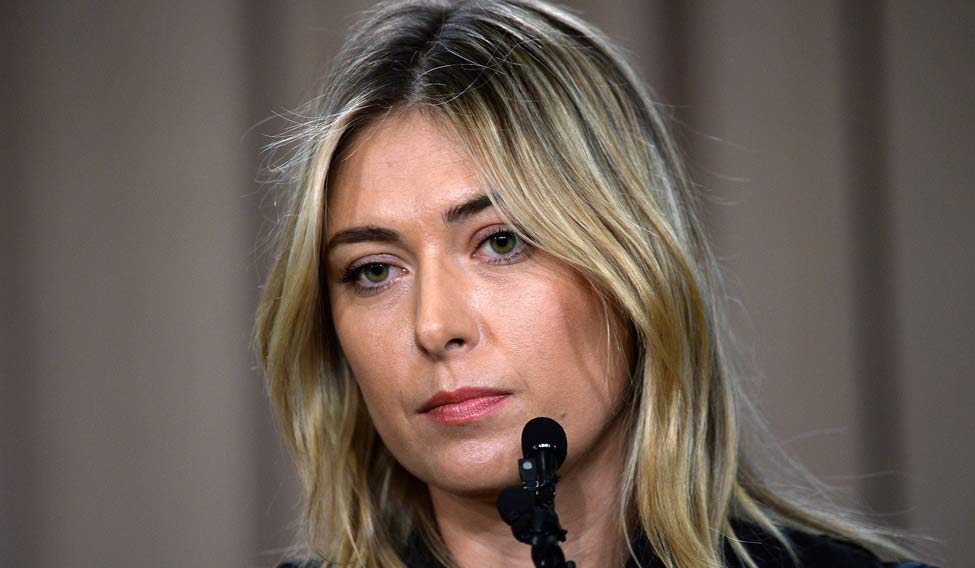Russian tennis ace Maria Sharapova on Monday admitted to failing a drug test at the Australian Open in January, an act that will get her suspended from tennis, BBC reported .
Sharapova, in a press conference in Los Angeles on Monday, said she had been taking the drug, meldonium, ever since 2006 and didn't realise that it became a banned substance by the World Anti-Doping Agency (WADA) at the start of 2016.
The International Tennis Federation, about an hour after her admission, said on its website that the 28-year-old would be provisionally banned from March 12. The usual ban for first-time offenders is two years.
The failed drug test came on January 26 -- after Sharapova lost to Serena Williams in the quarterfinals -- and she was charged with an anti-doping violation on March 2, the governing body additionally said.
"A few days ago I received a letter from the (International Tennis Federation) that I failed a drug test at the Australian Open," Sharapova, who has long been the world's richest female athlete, said in the press conference.
"I did fail the test and take full responsibility for it. For the past 10 years I have been given a medicine called mildronate by my doctor, my family doctor, and a few days ago after I received the ITF letter I found out that it also has another name, meldonium, which I did not know.
"It's very important for you to understand for 10 years this medicine was not on WADA's banned list and I had been legally taking the medicine for the past 10 years. But on January 1 the rules had changed and meldonium became a prohibited substance, which I had not known," the five-time grand slam winner said.
Sharapova said she began taking the medication, which can be used to treat heart issues, after irregular EKGs and being deficient in magnesium. Her family also has a history of diabetes, she added.
WADA stated in September that the anti-ischemic drug would be added to the prohibited list and Sharapova blamed herself for not taking note of the new list.
Steve Simon, CEO of the WTA women's tour, was "saddened" by the development but said it was down to Sharapova to make sure she knew the rules, the BBC report said.
"I am very saddened to hear this news about Maria," he said in a statement. "Maria is a leader and I have always known her to be a woman of great integrity. Nevertheless, as Maria acknowledged, it is every player's responsibility to know what they put in their body and to know if it is permissible.
"This matter is now in the hands of the Tennis Anti-Doping Program and its standard procedures. The WTA will support the decisions reached through this process."




